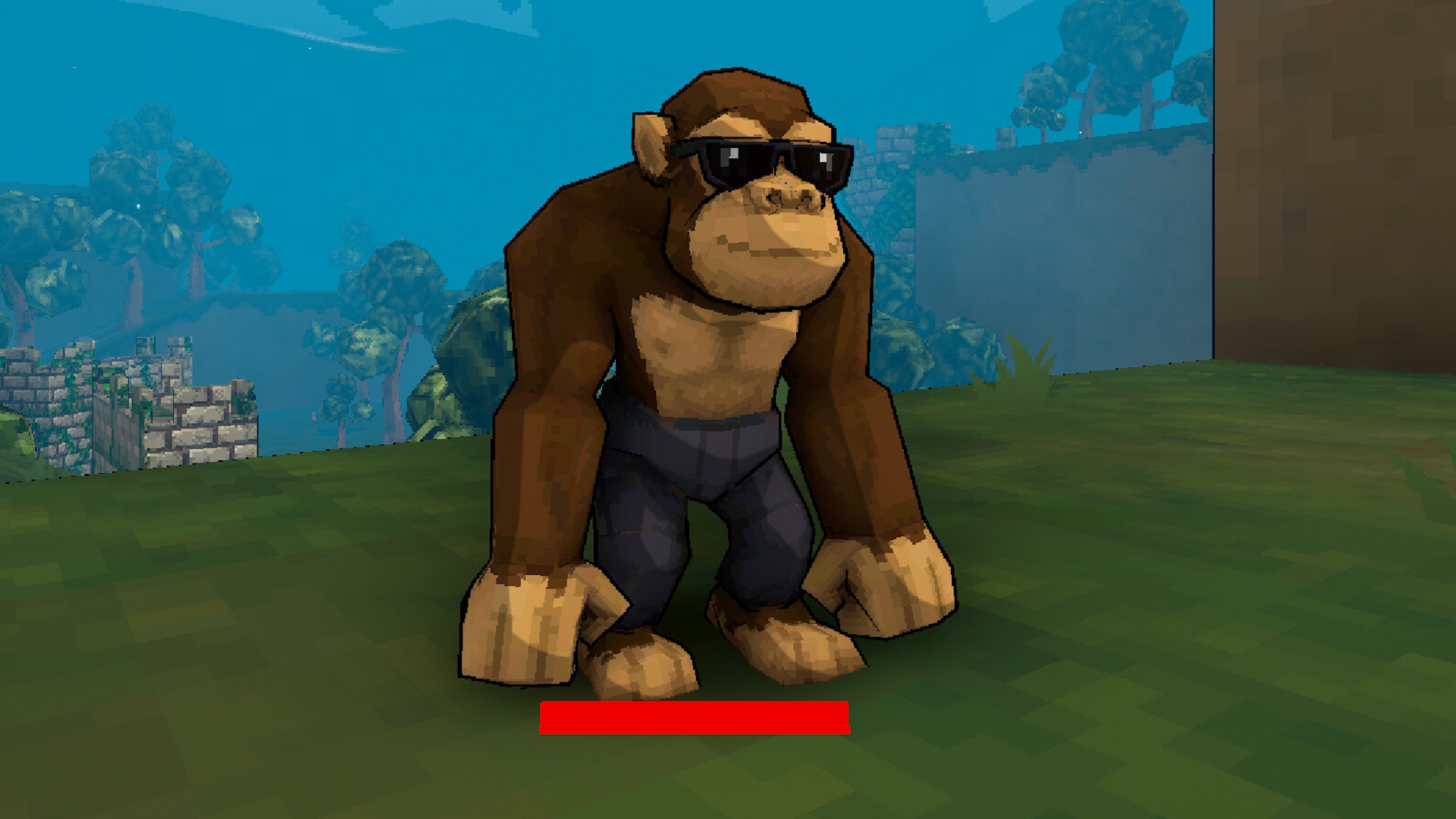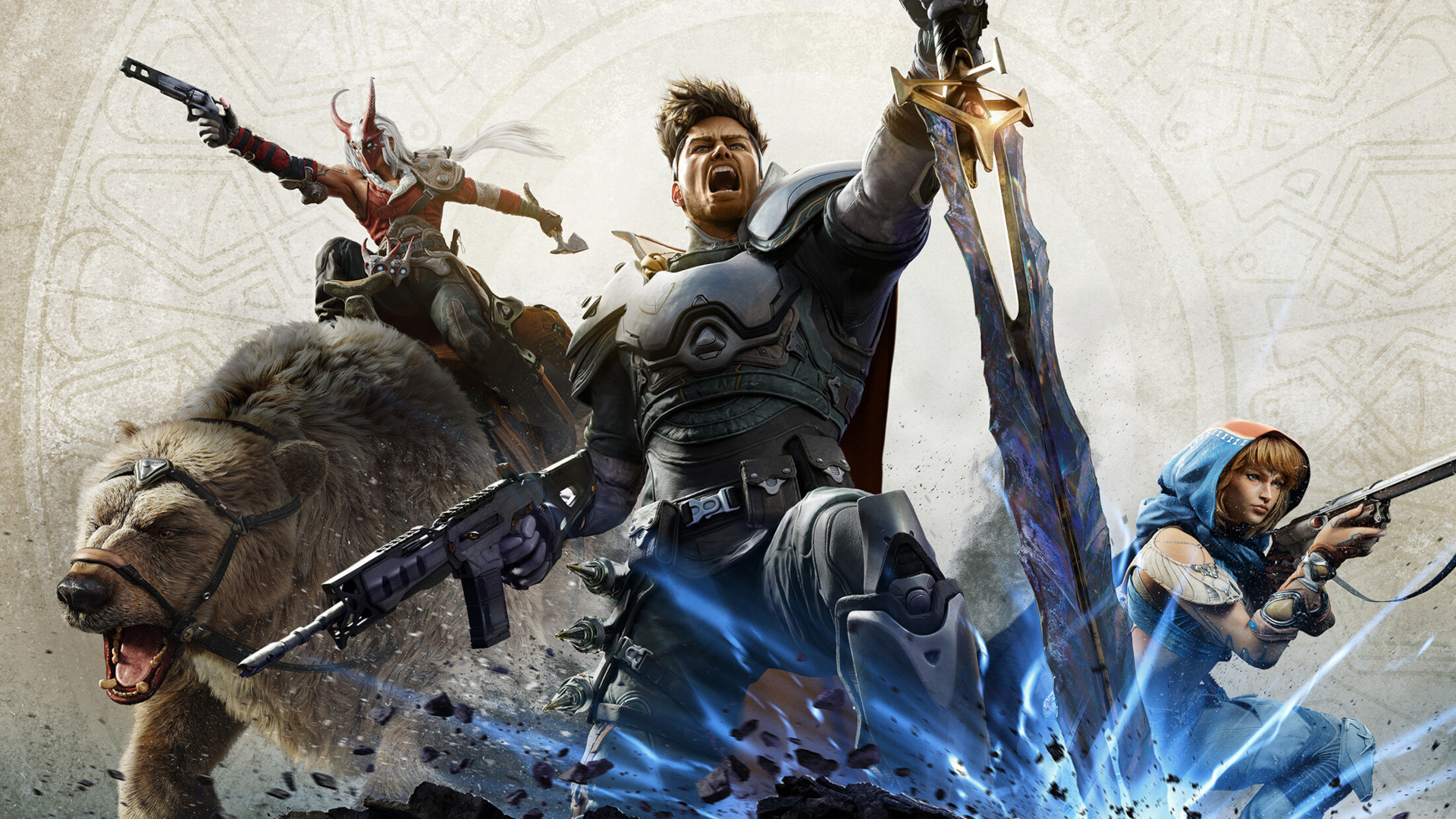Steam expert hails PC gaming "golden age" of rough-but-fun games that devs can make quickly and players love, from Peak to Megabonk: "Steam players want fun first"
Lethal Company, RV There Yet, Slots & Daggers, Cloverpit, the list goes on

Weekly digests, tales from the communities you love, and more
You are now subscribed
Your newsletter sign-up was successful
Want to add more newsletters?

Every Friday
GamesRadar+
Your weekly update on everything you could ever want to know about the games you already love, games we know you're going to love in the near future, and tales from the communities that surround them.

Every Thursday
GTA 6 O'clock
Our special GTA 6 newsletter, with breaking news, insider info, and rumor analysis from the award-winning GTA 6 O'clock experts.

Every Friday
Knowledge
From the creators of Edge: A weekly videogame industry newsletter with analysis from expert writers, guidance from professionals, and insight into what's on the horizon.

Every Thursday
The Setup
Hardware nerds unite, sign up to our free tech newsletter for a weekly digest of the hottest new tech, the latest gadgets on the test bench, and much more.

Every Wednesday
Switch 2 Spotlight
Sign up to our new Switch 2 newsletter, where we bring you the latest talking points on Nintendo's new console each week, bring you up to date on the news, and recommend what games to play.

Every Saturday
The Watchlist
Subscribe for a weekly digest of the movie and TV news that matters, direct to your inbox. From first-look trailers, interviews, reviews and explainers, we've got you covered.

Once a month
SFX
Get sneak previews, exclusive competitions and details of special events each month!
For all the contraction and hardship in the games industry, Steam expert, indie dev, and marketing consultant Chris Zukowski reckons we've entered a new "golden age" of indie games and "most developers don't realize it" because it's largely been propelled by tighter, tinier hits.
In a blog post, Zukowski likens this intersection of player appetite, agile ideas, and proven trends to a "Great Conjunction" planetary alignment.
"It doesn't happen very often and we all must stop and celebrate," he says. "The last Great Conjunction was when Vampire Survivors dropped in 2021" and kicked off a wave of Survivors roguelikes that Steam users devoured on sight, he adds.
Today, many more genres are white-hot. We've covered the success of roughly a zillion roguelikes this season, for one, and Zukowski points to a range of game trends driving huge success on Steam. One quality virtually all of these games share is that they can be, or were, made very quickly and cheaply by game dev standards.
Peak, a recent standout among the friendslop trend catalyzed by the likes of Lethal Company, is an obvious one. Most of the game was made in a month and it sold well over 10 million copies, setting up co-developer Aggro Crab, joined by Landfall on the Team Peak game jam, to make a new friendslop contender called Crashout Crew in another couple of months.
Zukowski highlights Megabonk as an example of "(MAYBE) Vampire Survivors gen 2," which has returned to humanity's thirst for screen-obliterating, serotonin-dispensing, roguelike-flavored chaos. Similarly, job and shop sims are dying down a bit after a gold rush of their own, but they're still kicking – just ask the recently released Tavern Keeper (a stunner in the works for quite a long time).
He also points to autobattlers and idle games like Desktop Defender, the latest in a lineage of side games boosted by Rusty's Retirement; rage games like Baby Steps and Get To Work, precision-engineered to generate clips on Twitch and YouTube and TikTok; and a whole lot of horror.
Weekly digests, tales from the communities you love, and more

"Horror is still hot," Zukowski continues, pointing to games like Escape the Backrooms and also, and this is not a joke, Backrooms Escape Together. Crucially, "fans accept horror games that are a little rough around the edges" without batting an eye," he says. (I heard similar remarks from the creator of Merchant 64, a simple N64-style merchant sim that got a lot of mileage out of great art and an audience that's hugely receptive to vibes.)
This is another recurring trend with these. "Players haven't given up on the idea of fun-to-play-but-rough-around the edges," Zukowski observes, arguing "Steam players want fun first" and you don't need sterling graphics or flawless polish to deliver fun. Megabonk looks like a meme and is capable of infuriating hitches, but it's still a good time. Just look at Nubby's Number Factory, a runaway plinko roguelike which looks frankly unnerving.
"That is what the Great Conjunction is about. Genres that are so fun that players look past graphics and polish. They just want tight, fun, deep gameplay," Zukowski reckons. "The goal here is to make a game fast, throw it out there as a demo, or a playtest, and see if people think the game is fun. If it is, ship it."
"When you pick a game that is in a Great Conjunction, the 'Steam Meta Rules' don't apply because steam shoppers are so hungry they eat anything that resembles the new trend before it is even fully cooked," he adds, tipping his hat to Mage Arena's early access success story. ("I love how charmingly sloppy and hand-made this game is! I am not hating on this game!" he clarifies.)
Zukowski reports that these so-called Great Conjunction games only represented 14% of the most-played games at the latest Steam Next Fest, offering a decent snapshot of what's popular and working on Steam. Survival crafting and building games, multiplayer games, and other Steam staples – including "games that take forever to develop," in Zukowski's words – are still the majority.

"More than likely your Great Conjunction game will still fail," Zukowski says. But the door is open, and it does feel like the Steam scatterplot has meaningfully clustered around these kinds of games this year especially.
In essence, by leveraging smaller games with big potential audiences hungry for more of their new favorite snack, game developers have a potential opportunity to make shorter games with worse graphics and potentially get paid more for working less. It's a gamble like any other game, but it could be a three-month gamble instead of a three-year one, and players stand to rapidly get more cheap, rough-but-fun games iterating on the ones they've been enjoying.
As someone who enjoys seeing developers, authors, and artists across mediums have fun with hot-button ideas, I find myself nodding along with this bit from Zukowski: "I don't like how 'chasing trends' has this presumptive negativity to it," he writes. "Steam shoppers really really want these types of games. We are feeding the gamers who are hungry for new games. They are looking for them, they need us to make these games for them.
"Yes these games are a trend. These trends will end some day. But that is what being on the cutting edge of a culture looks like. Gaming is a vibrant, constantly evolving art form. We are lucky that we create in a medium that is so alive. Critics lambast how stagnant film, literature, and the visual arts have become. We should be thankful that we have trends to chase."
In so many words: everything is a Balatro now, but are Balatro fans complaining?
The biggest winners and most memorable experiences are, of course, the games that started these trends. I also understand concerns about a descent into a rat race or slop singularity – thank goodness Steam doesn't have that problem, am I right – but if it means more developers finding success with tightly scoped games that end up being shockingly fun to play and can position those studios to fund more ambitious games in the future, I think the wins justify the inevitable stinkers. And almost anything that champions short games and shorter productions at this time of ballooning costs is a win in my book.

Austin has been a game journalist for 12 years, having freelanced for the likes of PC Gamer, Eurogamer, IGN, Sports Illustrated, and more while finishing his journalism degree. He's been with GamesRadar+ since 2019. They've yet to realize his position is a cover for his career-spanning Destiny column, and he's kept the ruse going with a lot of news and the occasional feature, all while playing as many roguelikes as possible.
You must confirm your public display name before commenting
Please logout and then login again, you will then be prompted to enter your display name.


